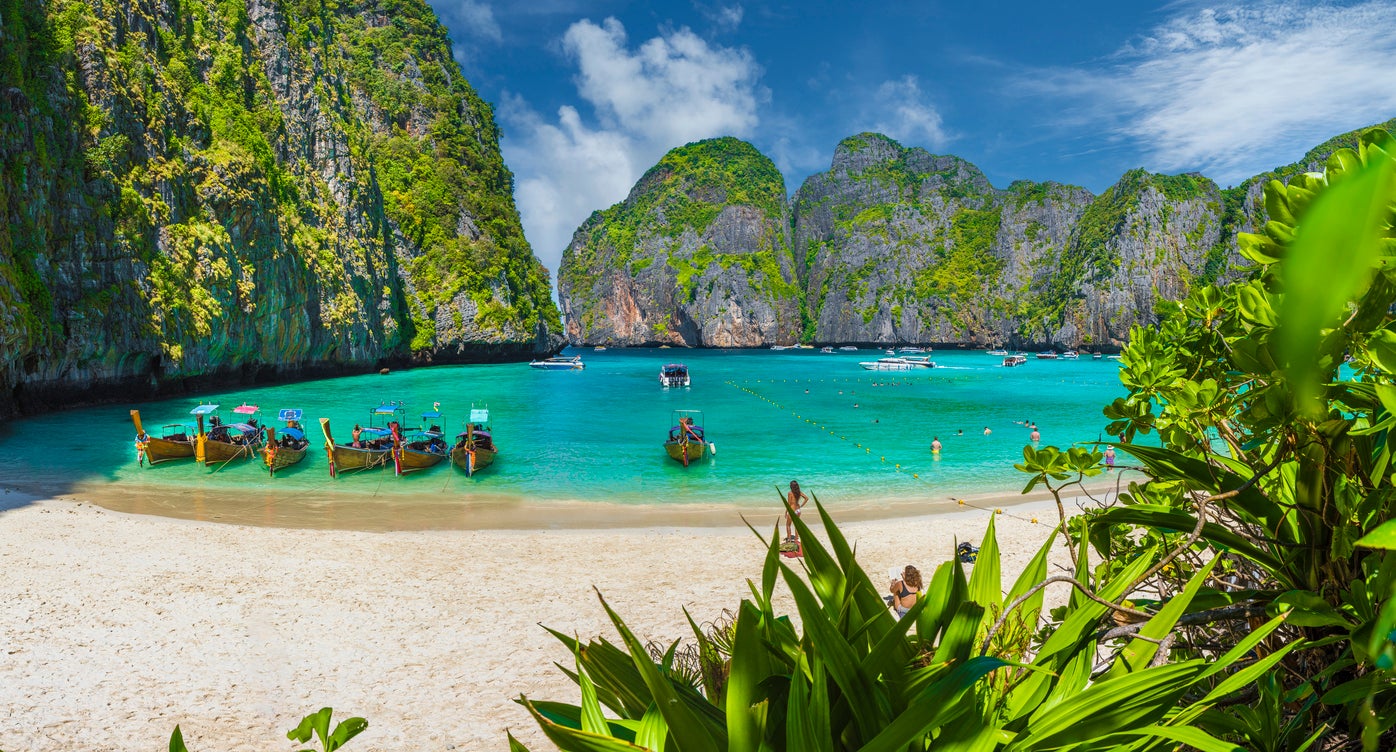World-famous beach reopens but bans swimming
Swimming ban is to protect restored coral and shark population

Your support helps us to tell the story
From reproductive rights to climate change to Big Tech, The Independent is on the ground when the story is developing. Whether it's investigating the financials of Elon Musk's pro-Trump PAC or producing our latest documentary, 'The A Word', which shines a light on the American women fighting for reproductive rights, we know how important it is to parse out the facts from the messaging.
At such a critical moment in US history, we need reporters on the ground. Your donation allows us to keep sending journalists to speak to both sides of the story.
The Independent is trusted by Americans across the entire political spectrum. And unlike many other quality news outlets, we choose not to lock Americans out of our reporting and analysis with paywalls. We believe quality journalism should be available to everyone, paid for by those who can afford it.
Your support makes all the difference.Thailand’s most famous bay, Maya Beach, has finally reopened to tourists - but swimming is banned.
The cove on Ko Phi Phi Leh island shot to worldwide fame in 2000, when it appeared in Hollywood film The Beach, giving it such a mythical aura that, by 2018, 5,000 tourists a day were flocking there.
Though small, the 250-metre-long cove in Krabi Province is surrounded by limestone cliffs, giving it a dramatic appearance when accessed by boat.
Thai authorities closed off the beach in summer 2018 in order to restore the natural landscape and allow its ecosystems, including coral reefs, to recover after being damaged by overtourism.
Natural Resources and Environment Minister Varawut Silpa-archa announced the January 2022 reopening date in November, saying that conservationists were satisfied that the area had at last sufficiently regenerated.
The Governor of Tourism Authority Thailand told Reuters, “The sharks have come back, coral reefs are regrowing, and the water is clear again. These things show that nature will heal if we give it time, and we have to work to keep it that way too.”
However, visitors are not allowed to swim in the bay itself, in an effort to protect the restored coral and the black-tipped reef sharks that returned to the bay during its closure.
Other restrictions for those visiting Maya Beach include tourists only being allowed to visit for an hour; motorboats being banned from the bay itself (tour boats will have to anchor in another bay on the other side of the island); a maximum of eight speedboats allowed nearby at any time; and a cap on the number of visitors able to enter per hour - 375 - between 10am and 4pm only.
Thailand is open to fully vaccinated visitors with seven to 10 days’ hotels quarantine, under specific tourism schemes you must apply for.
For example, those visiting under the “Phuket Sandbox” scheme - flying direct to the holiday island - can spend their first seven days within certain Phuket resorts before travelling elsewhere in the country.
Meanwhile the Alternative Quarantine scheme allows vaccinated travellers to quarantine for seven days at certain government-accredited hotels in Bangkok before transferring elsewhere.
In December the country suspended its “Thailand Pass” and Test and Go schemes for general quarantine-free travel to reduce the importation of the Omicron variant.
Join our commenting forum
Join thought-provoking conversations, follow other Independent readers and see their replies
Comments